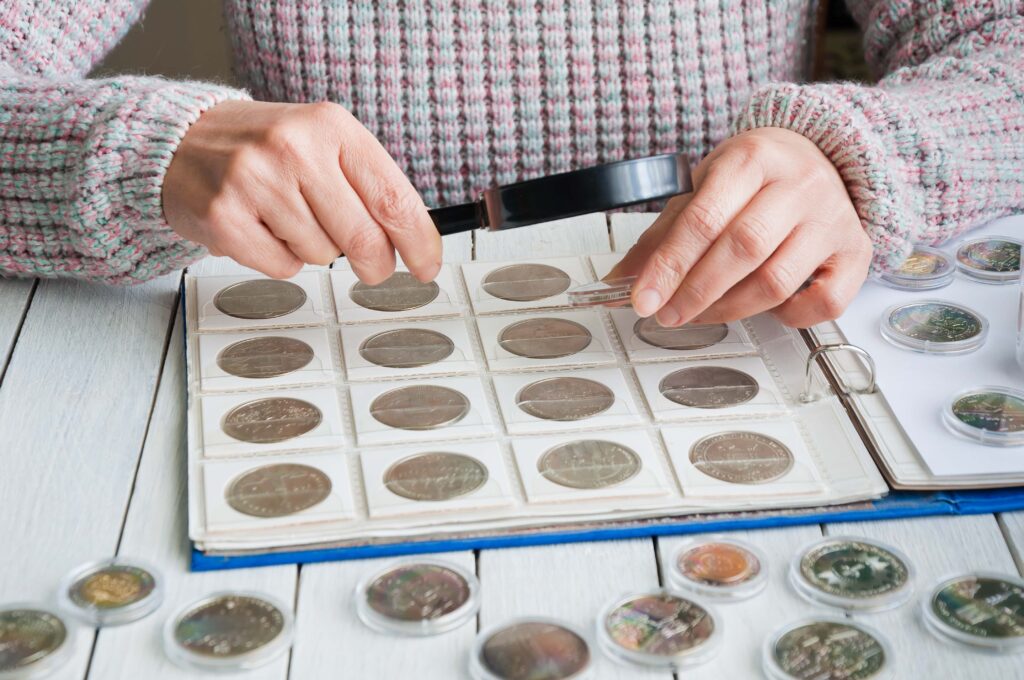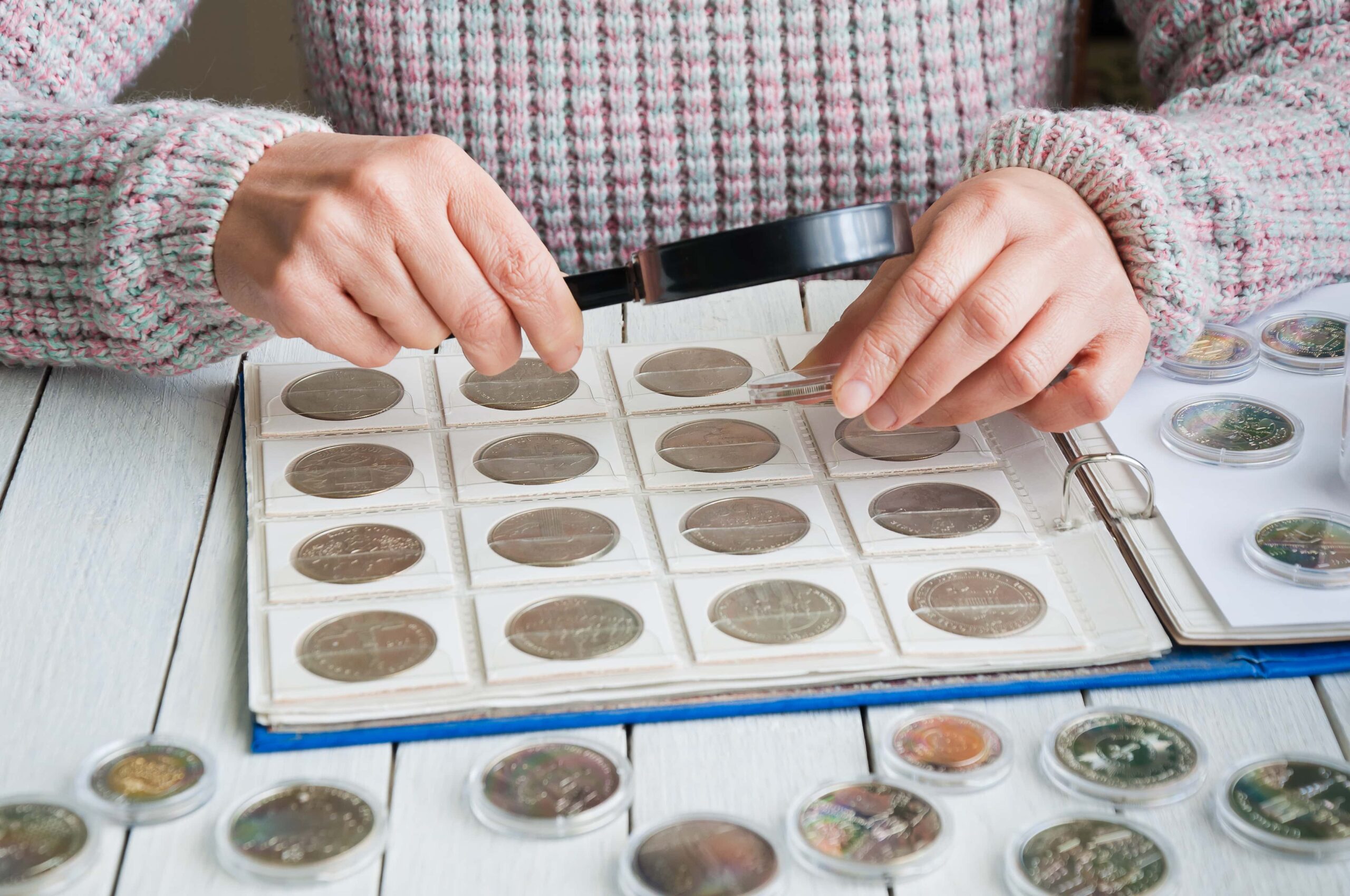
Discover the best way to store your coin collection
So you’ve set out on your coin collecting journey – that’s great! There is no better feeling than the buzz you get from bagging yourself rare coins, and watching your collection grow over time. As one of the most popular hobbies out there, coin collecting is extremely rewarding and brings enjoyment for many reasons, whether that be from the historical aspect, or from knowing that you can pass your collection down in the future to your friends or family members.
Now that you are at the beginning of your journey, you may be wondering what tips and tricks other numismatists have when it comes to the general handling and storing of coins. It can sometimes be a minefield, with so many different options to choose from, but don’t panic!
Generally, proof coins are almost always supplied in a plastic capsule or presentation case. However, if you are going down the circulating coin route, or find enjoyment by finding rare coins which are not available for purchase, then you will need to store these coins correctly. If you are unsure about the best ways of looking after your collectable coins, you’ve come to the right place. Here we have everything you need to know about how (and how not to) store your coin collection.
How do you store commemorative coins?
Globally, there are millions of people who collect coins as a passtime, and as fun as it can be, it is also important that the appropriate measures are taken to ensure that your collection is looked after properly. For your benefit, it is advisable that you put in the extra funding and effort to ensure your coin collection is stored away from any potentially damaging environmental factors, as this will help to preserve your collection.
Whether they are gold or silver, coins are precious metals which can become easily damaged by factors such as other coins, natural oils, moisture or even air! Although fun and enjoyable, the world of numismatics can also be quite time-consuming and sometimes fairly expensive. Therefore, it is crucial that you put the maximum effort into storing and caring for your commemorative coins correctly, and there are various methods that you can choose from.
One of the most popular storage option amongst collectors is the use of coin folders or albums. You can easily purchase these online and they will come in two options; blank, or ones that are organised in a specific way i.e. date of minting or coin type. This method is best suited to those who collect coins as part of a series, but can be used for individual coins also.
Another common storage option is Coin Flips. This is essentially ‘paper flips’ which are folded to 2×2 inches in order to sandwich a coin in-between the layers. You can either get the paper flips which are stapled together, or you can purchase the ‘Peel-n-Seal’ paper flip which uses adhesive instead. Once the coins are in place, collectors will either place the flips in boxes or clear pocket pages.
If you prefer a stronger storage method, then you can also use ‘Coin Snaps’. These are two sections of polystyrene that press together with a black foam insert inside for you to place your coin. You will find that there is a white insert on one side so that you can label your coins if you wish. A method similar to this is a ‘Coin Display Slab’ which is slightly larger than a coin snap, and has a section at the top which allows you to label your coin.
Where should coins be stored at home?
Now that you have got the appropriate storage method covered, the next step is to figure out which area in your home is the best place to keep your coin collection. Although you may not think it, the area which you choose for your coin storage can affect their condition, so it is important that you take into consideration all of these factors.
Firstly, you need to ensure that your coins are protected from any extremities of temperature. Places such as the loft or other roof spaces, or any rooms or outhouses which are unheated should be avoided. This is because the coin’s surface can encourage condensation when the temperature changes from cold to hot quickly. You should also avoid conservatories, bathrooms, kitchens, or basements/cellars as they are all areas with potentially high humidity. It is crucial that you also ensure that your collection is not kept up against a cold wall, or on a cold floor.
High levels of airborne pollutants, such as sulphur, can significantly impact your collection, therefore, you need to ensure that your collection is away from any sources of air pollution. This includes paint fumes or exhaust fumes. An undetected leak around your house can also cause huge damage to your collection, so it is imperative that you keep your coins away from any potential leak sources, such as pipes or windows.
If you are collecting high-value coins, it is important that you also consider putting security measures in place. We would advise that you place your collection in a safe or safe-deposit box in your home to prevent any theft or vandalism. You could also consider adding them onto your home insurance, or taking out insurance to cover the cost should anything unfortunate happen.
Is it ok to store collectable coins in plastic bags?
A general rule of thumb is that you should never store coins loosely, whether that be in a bag or a box. This is because the coins will rub against each other, damaging them in the process which in turn reduces the quality of your coins. It is advisable that you keep each coin separately in a dedicated storage option of your choice.
The first and most crucial thing you need to ensure when choosing your storage method is that the material is acid free. Polypropylene, Polyester and PVC are the most common types of plastic used, however, PVC is usually not acid free, so you need to ensure that this type of plastic is avoided at all costs. Unfortunately, most standard plastic bags and Ziploc bags will contain some PVC, as do most plastic products of a lesser grade, so you need to be extra careful with this. PVC will break down over time and become brittle, releasing acids into the environment as well as leaving residue on your collectable coins. What this means for your collection is that it will cause possible staining and corrosion.
Therefore, we would advise that you do not store your collectable coins in plastic bags. Besides, you’ve worked hard and managed to collect for yourself some incredibly rare and beautiful gold and silver coins, why hide them away in plastic bags where they can become damaged? You should be proud to show off your coin collection, and when they are in the correct presentation storage, your fellow coin collectors will be in awe!
What not to store your coin collection in
So, now that we have established that storing your commemorative coins in plastic bags is something that you should avoid at all costs, it is important to recognise that as long as you follow the above mentioned tips, you will have a pristine and successful collection.
Once you have decided which storage method to use, the next step is to store your coins in an acid free box to provide them with an enhanced level of protection. Again, you should avoid any boxes made of PVC, and you must be careful with any wood or painted surfaces, such as enamel, as they can give off gas acids. If you decide to use a flocked finish drawer or tray, you must ensure that these are also acid free. To prevent your silver coins from corroding, you could use pacific silver cloth, or Plastazote foam which is acid free.
The improper storing and handling of collectable coins can be detrimental to the longevity of your collection. Not taking the correct precautions when handling rare coins can result in their surface corroding over time, most commonly from the natural oils found on our hands and fingers. Therefore, you should only hold coins by their edges, or you should ensure that you are wearing gloves when handling your commemorative coins to provide extra protection.
This is why our top recommendation for coin storage would be to use coin folders or albums, as these enable you to admire and flaunt your collection as often as you like, without the risk of you causing damage to your coins by excessive touching or oxidation from the environment. Did you know that even moisture droplets from talking or breathing onto your coins can cause damage? The key thing to remember is to keep your collection cool and dry at all times. Ensure that you also keep any documentation, such as certificates of authenticity, in a safe place for future reference, and you will be all set for your exciting coin collecting adventure!

